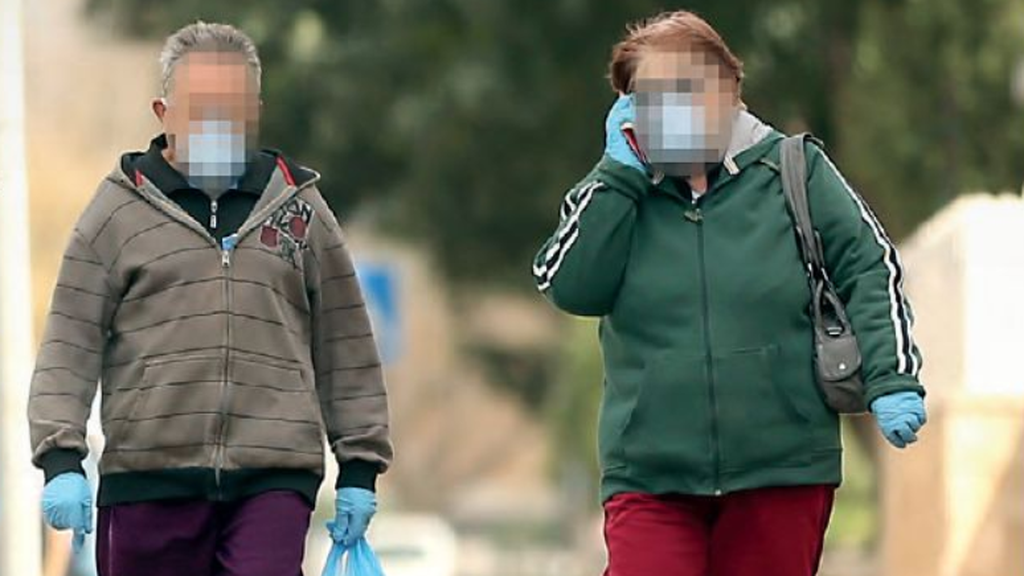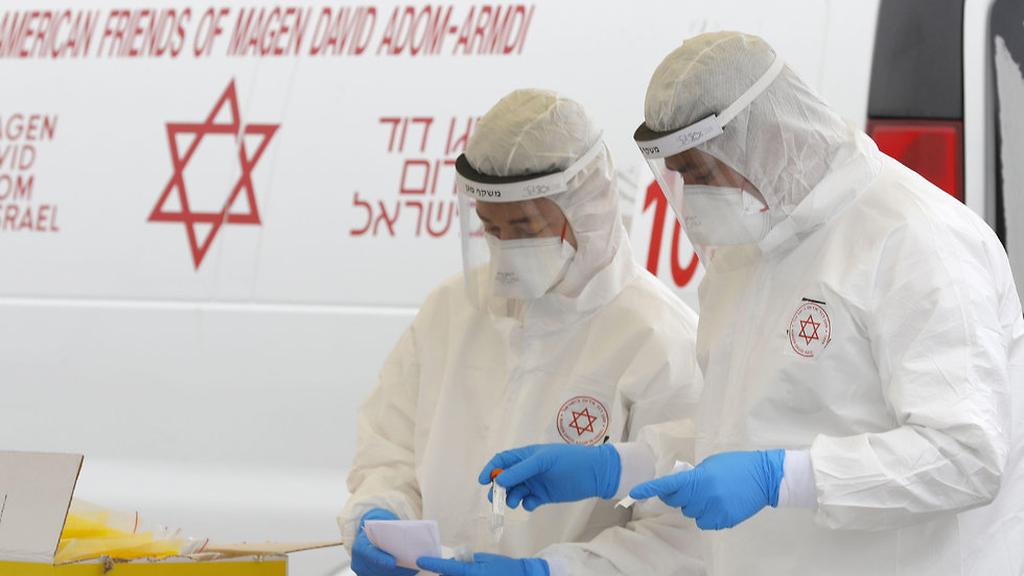Getting your Trinity Audio player ready...
A controversial method of tracking the movements of coronavirus patients through their cell phones has helped to identify more than 1,500 new cases of the virus, according to data provided by the Shin Bet domestic security service.
For the past two weeks, the Health Ministry has been routinely passing names of confirmed coronavirus patients to the Shin Bet. The agency then tracked the phones of the confirmed patients, trying to analyze who was in their proximity so as to alert them to immediately enter quarantine.
The agency said its efforts led to self-isolation for more than 1,500 Israelis who were later confirmed to have the virus.
3 View gallery


An Israeli woman wearing mask and gloves against coronavirus infection uses her cell phone
(Photo: Elad Gershgon )
Prof. Siegal Sadetzki, the head of public health at the Health Ministry, told Knesset members on Monday that without the technical assistance given by the Shin Bet, more than 60% of those who needed to enter quarantine would not have been located.
The new data was included in a report provided by the security agency, which was instructed by Attorney General Avichai Mandelblit to update the Knesset's Foreign Affairs and Defense committee and newly formed special coronavirus committee every three days.
For two weeks, the Shin Bet has been working constantly and covertly to provide the Health Ministry with a clear image of all those who had come into contact with confirmed virus patients.
Since the agency mainly deals with anti-terrorist activity, its involvement in the efforts to fight the coronavirus is seen as rather unusual. Some expressed concern at the prospect of citizens' phones being tracked and demanded close oversight from the Justice Ministry and Knesset to prevent any breach of privacy.
As a result, Mandelblit ordered a close watch on the Shin Bet activity, including its three-day reports and oversight by the two Knesset committees.
As part of this oversight, deputy attorneys general Dina Zilber and Raz Nizri visited one of the Shin Bet facilities tasked with tracking patients via their phones.
The Justice Ministry said that the need to track citizens' phones to save lives did not "justify all possible means."
Therefore, the ministry said, "great effort is made to ensure the authority given to the Shin Bet is temporary, limited in scope and subject to judicial oversight."
Sources close to the attorney general say that Mandelblit, Nizri and Zilber have been closely inspecting all government actions since the epidemic broke out to ensure that no undemocratic measures or actions are taken during the crisis.
But at a Knesset debate Monday, it emerged that the current government, despite its interim status following the March elections, has managed to legislate a record number of such directives.
These include issuing quarantine instructions, limiting court activity, halting prison visits, authorizing the Shin Bet to track phones, expanding the authority granted to paramedics and suspending the education system.
The attorney general has also reportedly refused to fold this emergency legislation in the Basic Law: The State Economy, on the grounds that neither the coalition nor the Knesset can amend a Basic Law - which form the basis of Israel's governance - during emergency measures.



